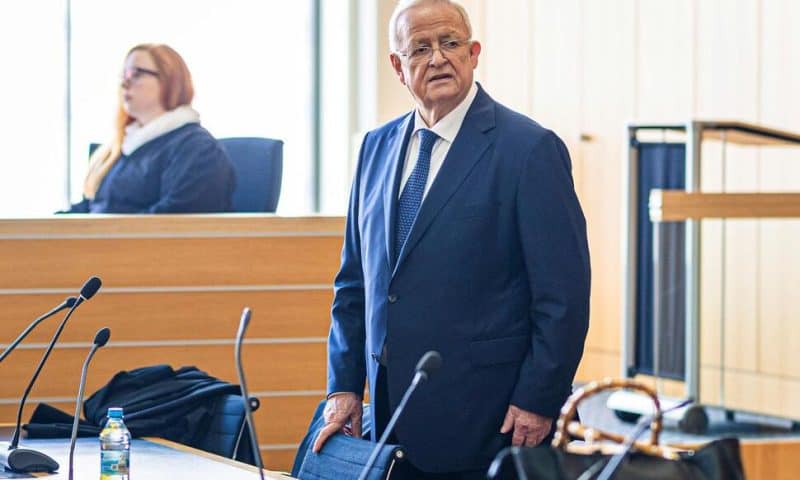Former Volkswagen Group CEO Martin Winterkorn has gone on trial on charges of fraud and market manipulation
FRANKFURT, Germany — Former Volkswagen Group CEO Martin Winterkorn went on trial Tuesday on charges of fraud and market manipulation in connection with the corporate scandal over Volkswagen’s use of rigged software that let millions of cars cheat on emissions tests and emit high levels of harmful pollutants.
Prosecutors say Winterkorn knew about the illegal software well before the U.S. Environmental Protection Agency announced its discovery of the violation in September 2015. He resigned days later.
He has said he learned about the practice only shortly before the announcement and earlier testified during civil proceedings that the allegations against him “are not correct.”
Winterkorn’s attorney, Felix Doerr, said ahead of court proceedings in Braunschweig on Tuesday that “our client definitively rejects the accusations brought against him.” He said that Winterkorn’s position as CEO was not justification to make him responsible for the scandal in all its aspects.
Winterkorn, 77, was scheduled to go on trial in 2021 with four other VW executives but his case was postponed due to health issues.
The diesel scandal had wide-ranging consequences for the company and the auto industry. Volkswagen wound up paying more than 31 billion euros ($34 billion) in fines and legal settlements. Sales of diesel-powered cars, once favored for their fuel efficiency over gasoline-powered vehicles, plunged as a share of the car market in Europe.
Winterkorn faces three separate sets of charges: defrauding auto purchasers by selling the cars with illegal software, stock-market manipulation by not revealing required information to investors, and making false statements before a parliamentary commission of inquiry in 2017. He face up to 10 years in prison if convicted.
Court sessions are scheduled through September 2025 in the complex case. The fraud indictment alone stretched to 692 pages including the other four defendants, while the case file consists of 300 volumes with 75,000 pages of supporting documents.
Prosecutors alleged in their indictment that Winterkorn learned of the issue at least by May 2014, but continued to permit the practice and allowed rigged cars to be sold. They say that the software appeared in Volkswagen cars in Europe and the U.S. as early as 2006.
The software turned up emissions controls during testing, then turned them down during everyday driving, allowing the cars to emit more than the permitted levels of nitrogen oxide. Nitrogen oxide can irritate people’s airways and contribute to the development of asthma.

